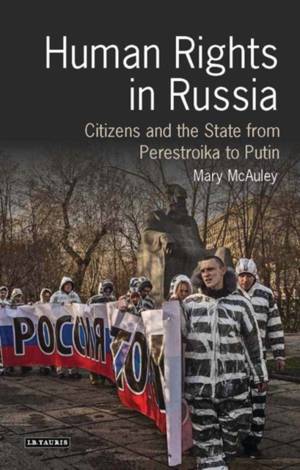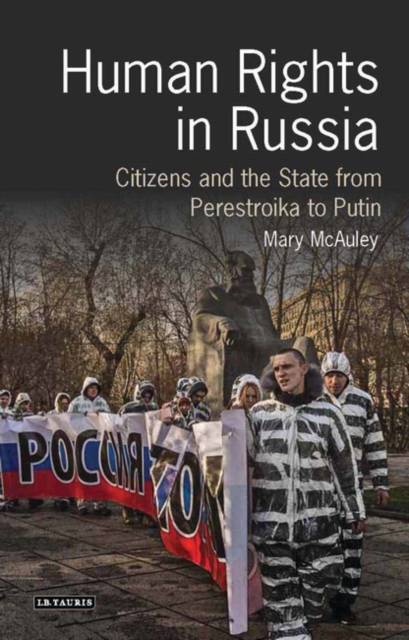
- Afhalen na 1 uur in een winkel met voorraad
- Gratis thuislevering in België vanaf € 30
- Ruim aanbod met 7 miljoen producten
- Afhalen na 1 uur in een winkel met voorraad
- Gratis thuislevering in België vanaf € 30
- Ruim aanbod met 7 miljoen producten
Zoeken
€ 296,95
+ 593 punten
Uitvoering
Omschrijving
Today Russia and human rights are both high on the international agenda. Since Putin returned to the presidency in 2012, domestic developments--from the prosecution of Pussy Riot to the release of Khodorkovsky--and Russia's global role, especially in relation to Ukraine, have captured the attention of the world. The role of human rights activism inside Russia is, therefore, coming under ever greater international scrutiny. Since 1991, when the Russian Federation became an independent state, hundreds of organisations have been created to champion human rights causes, with varying strategies, and successes. The response of the authorities has ranged from being supportive, or indifferent, to openly hostile. Based on archival research and practical experience working in the community, Mark McAuley here provides a clear and comprehensive analysis of the progress made by human rights organisations in Russia--and the challenges which will confront them in the future.
Specificaties
Betrokkenen
- Auteur(s):
- Uitgeverij:
Inhoud
- Aantal bladzijden:
- 320
- Taal:
- Engels
- Reeks:
Eigenschappen
- Productcode (EAN):
- 9781784531256
- Verschijningsdatum:
- 30/04/2015
- Uitvoering:
- Hardcover
- Formaat:
- Genaaid
- Afmetingen:
- 140 mm x 218 mm
- Gewicht:
- 589 g

Alleen bij Standaard Boekhandel
+ 593 punten op je klantenkaart van Standaard Boekhandel
Beoordelingen
We publiceren alleen reviews die voldoen aan de voorwaarden voor reviews. Bekijk onze voorwaarden voor reviews.











